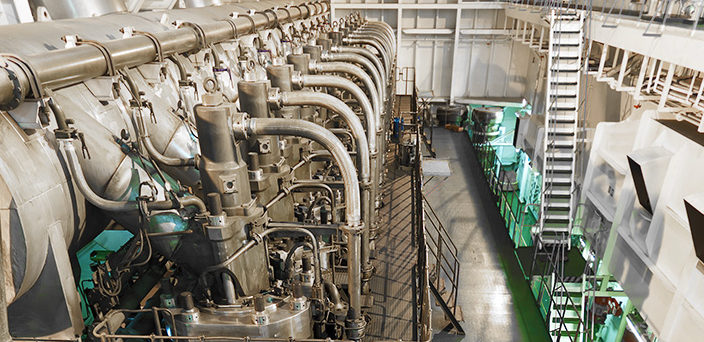The Nautical Institute has issued Mars Report referring to an incident in which engine was shut down automatically due to the main engine crankcase oil mist detector (OMD) having been activated.
The Incident
The general cargo vessel had completed loading and the crew were undertaking the usual tasks prior to departure. Once the pilot was on board, the vessel left the berth with the assistance of one tug. Within ten minutes, the vessel was turned and the tug released. The vessel was then underway. About ten minutes later there was a sudden blackout. Both anchors were quickly dropped but the vessel came into contact with the harbour breakwater nonetheless.
The company investigation found that the engine was shut down automatically due to the main engine crankcase oil mist detector (OMD) having been activated. As it happened, the particular make and model of OMD on the vessel had only one operational mode: if oil mist was detected, it shut down the main engine.
Other vessels under the same management had OMDs with two modes;:
1) ‘sea mode’ where detection would shut down the main engine, as in this case, and
2) ‘harbour mode’ where detection of oil mist means the main engine RPM is reduced automatically and vessel manoeuvrability is maintained.
The investigation also found that in this case the OMD experienced a false alarm. While loading in port, the main engine stand-by heating had been switched off to allow maintenance, allowing a higher than normal humidity within the engine. The OMD detection was apparently triggered by the resulting water condensation.
Lessons learned
- Although it is tempting to free harbour tugs as quickly as possible, in the restricted waters of a small port their assistance can be invaluable should something go wrong.
- A well designed safety device such as an OMD should have at least two operating modes to better mitigate risks.
- When conditions are changed from normal operational values, such as in this case by shutting off the main engine stand-by heating, expect the unexpected. Take the time to think through whether any unwanted consequences may result.


































































As Librarian I can recommend this website to our maritime students / professors and researchers as well. The information from various articles are informative and useful for their study and research.